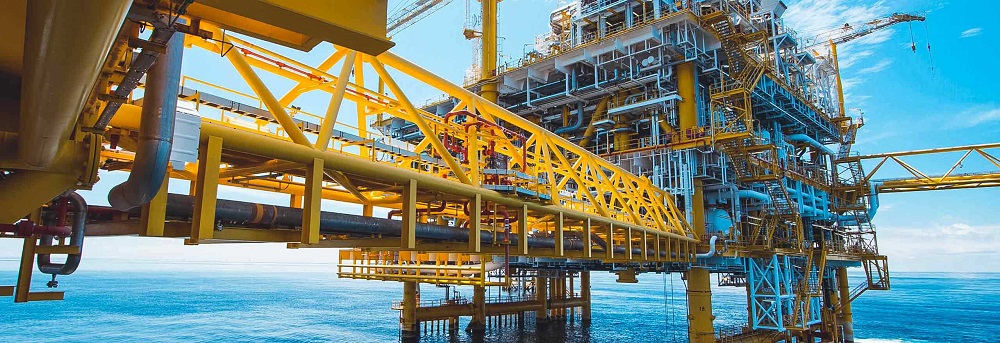Oil and gas are major industries in the energy market and paly an influential role in the global economy as the world’s primary fuel sources.
Oil and gas production is a multi-stage entire process of discovering a resource, transporting it to a refinery, and turning it into a finished product ready for sale. Or, in industry terminology, it is broken down into three segments: upstream, midstream, and downstream.
- Upstream, or exploration and production (E&P) companies, find reservoirs and drill oil and gas wells.
- Midstream companies are responsible for transportation and storage of oil and gas.
- Downstream sector covers refining the crude oil and purification of the natural gas, marketing the finished products.

Challenges in The Oil and Gas Industry
Corrosion
The production of crude oil contains sulfur and hydrogen sulfite, which forms high corrosion in pipelines. Therefore, metal material loses gradually, which leads to inefficient performance of oil field piping.
High-Pressure
The offshore oil industry constantly pushes oil investigation to more prominent depths, which leads to higher pressure conditions and harsh environments.
High- Temperature
Pipelines in the oil refinery industry have to endure extreme temperatures and pressures, which poses significant challenges to materials.
Benefits and Applications of stainless steel
Among all types of stainless steel, Duplex Steel and Super Duplex Steel have much better performance. That’s why they can regularly be used in oil and gas pipelines and piping systems, flowlines, manifolds, risers, pumps, valves, heat exchangers, separators ect.
As well as Stainless Steel, Nickel Alloy and Inconel are two of the most robust and enduring materials that are also versatile enough to be used within the oil & gas piping.
Hengyang Piping and the Oil and Gas Industry
Hengyang Piping understands the needs and requirements of the global industry and works with the very best mills and manufacturers in China in order to best service our clients. We will continue to source and supply the most high-quality super duplex stainless steel and nickel alloys products for piping in oil and gas industry- whether that’s pipes, flanges or fittings.
Corrosion
The production of crude oil contains sulfur and hydrogen sulfite, which forms high corrosion in pipelines. Therefore, metal material loses gradually, which leads to inefficient performance of oil field piping.
High-Pressure
The offshore oil industry constantly pushes oil investigation to more prominent depths, which leads to higher pressure conditions and harsh environments.
High- Temperature
Pipelines in the oil refinery industry have to endure extreme temperatures and pressures, which poses significant challenges to materials.
Benefits and Applications of stainless steel
- Excellent corrosion resistance
- High tensile and yield strength
- Long-term cost benefit
Among all types of stainless steel, Duplex Steel and Super Duplex Steel have much better performance. That’s why they can regularly be used in oil and gas pipelines and piping systems, flowlines, manifolds, risers, pumps, valves, heat exchangers, separators ect.
As well as Stainless Steel, Nickel Alloy and Inconel are two of the most robust and enduring materials that are also versatile enough to be used within the oil & gas piping.
Hengyang Piping and the Oil and Gas Industry
Hengyang Piping understands the needs and requirements of the global industry and works with the very best mills and manufacturers in China in order to best service our clients. We will continue to source and supply the most high-quality super duplex stainless steel and nickel alloys products for piping in oil and gas industry- whether that’s pipes, flanges or fittings.